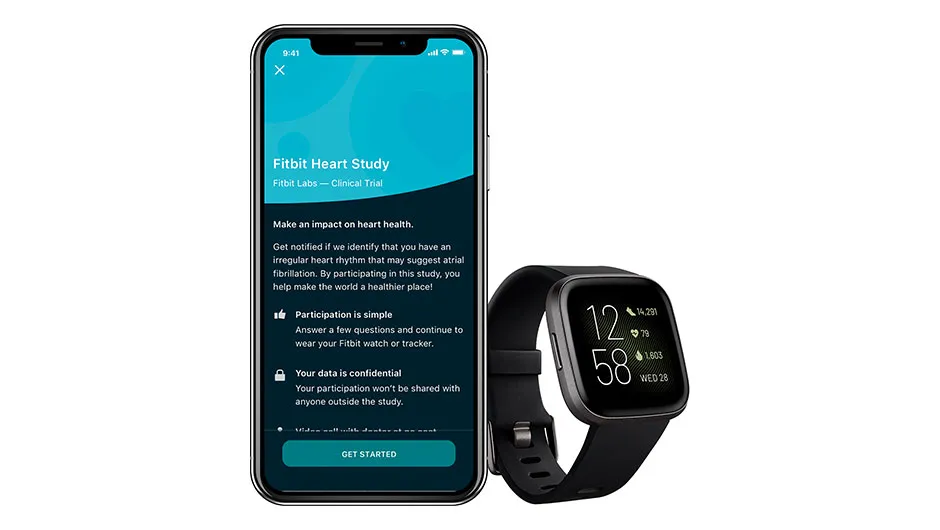Fitbit has kick-started a piece of research, involving hundreds of thousands of users, to find out if its heart-rate tracking tech could spot undiagnosed health conditions.
In particular, the Fitbit team want to test if they can identify Atrial Fibrillation (AFib), an irregularity in the heart’s rhythm that can be a precursor to stroke.
Most Fitbit devices can track your heart rate 24/7, thanks to their long battery lives and improved sensors. Usually this data charts your fitness and sleep quality, but Fitbit hopes that the long-term tracking of heart rhythm, over several days at a time, will provide a window into the wearer’s heart health.
To track heart rate, certain Fitbit models use technology called photoplethysmography – a technique that detects changes in blood volume in the tissue just beneath the skin. It works by shining a light into your skin and monitoring the light that bounces back to identify changes in blood flow, volume and oxygenation.
Read more about future technology and health:
- Sonia Contera: How will nanotechnology revolutionise medicine?
- Smart toilet checks your health by analysing your wees and poos
- Biometrics: can high street health tests really help you improve your health?
This technology is commonly found in accident and emergency departments around the world in the shape of small clips that nurses clamp to your finger to check your oxygen levels.
Participants in the experiment who receive a notification about an irregular heart rhythm will be given a virtual appointment with a doctor in the US free of charge – and could potentially receive an electrocardiogram (ECG) patch in the mail to check the diagnosis more thoroughly.

Fitbit isn’t the only one testing whether wearable tech can be of use in a medical setting. Apple has looked into whether it could detect AFib too, with moderate success.
The tech giant has also been investigating whether its smartwatches could provide insight into other conditions, like seizures and binge-eating.
Indeed, this study by Fitbit is just one piece in a broader initiative by the company to use its tech and huge customer base to develop early diagnosis tools.
Earlier this year, Fitbit partnered with Scripps Research and Stanford Medicine to study the role that wearables could have in detecting, tracking and containing infectious diseases like COVID-19.
